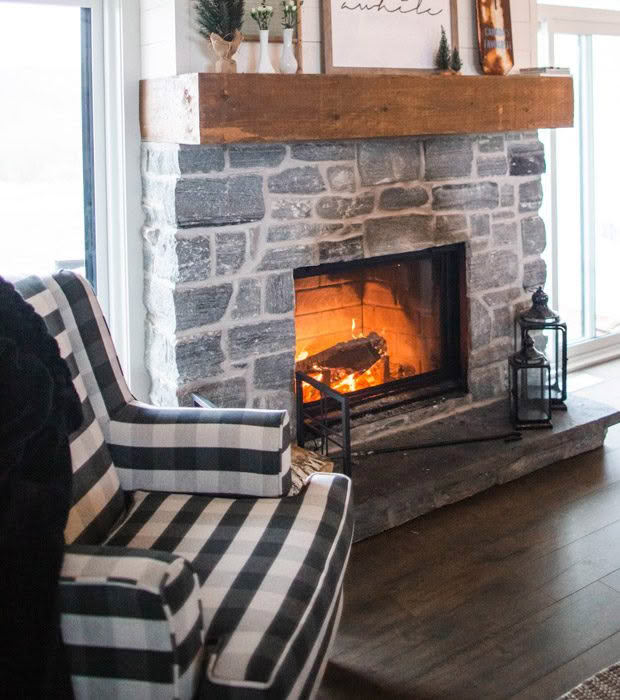4 things to know about firewood for a cosy winter

Knowing your hardwoods from your softwoods makes a big difference.
Words: Nadene Hall
1. The key to a cosy, warm fire is what you do (or don’t) put in the firebox. Here are the basics of good firewood.
If you plan to have your fire burning all day, you’ll need a lot of hardwood, which is slow burning. If you only light your fire for a couple of hours at night, you need a mix of softwood (to get it burning) and hardwood (to maintain the heat).
Softwoods: pine, macrocarpa, cypress, Douglas fir.
Hardwoods: eucalyptus (gum), acacia, oak, fruit and nut trees.
2. Modern woodburners and fireplaces come with instruction books on how to use them efficiently, and crucially, what not to burn. This includes:
Plastic or other household rubbish – these release toxic fumes as they burn which can cause ill-health, and usually smell terrible too.
Driftwood – it contains a high level of salt, creating a corrosive steam when it burns which can damage the inside of the firebox.
Treated, composite (ie plywood, particle board), varnished, or painted wood – release toxic chemicals when they burn.
Colour printed paper – coloured inks release toxic chemicals when they burn.
3. The best time to cut trees for firewood is mid-late winter, at least four weeks before bud burst. Sap levels and the overall level of sugar in trees will be at their lowest, so it will dry much faster. If you’re coppicing trees such as alders, it may take a year or so before they start to grow sprouts, so be patient.
4. The best time to buy firewood price-wise is September to December. You’ll get it at the lowest price, especially if you buy wet wood in bulk and dry it yourself. Softwoods should be dry by the following winter, but hardwoods will need 12-18 months.
MORE HERE
Love this story? Subscribe now!
 This article first appeared in NZ Lifestyle Block Magazine.
This article first appeared in NZ Lifestyle Block Magazine.
